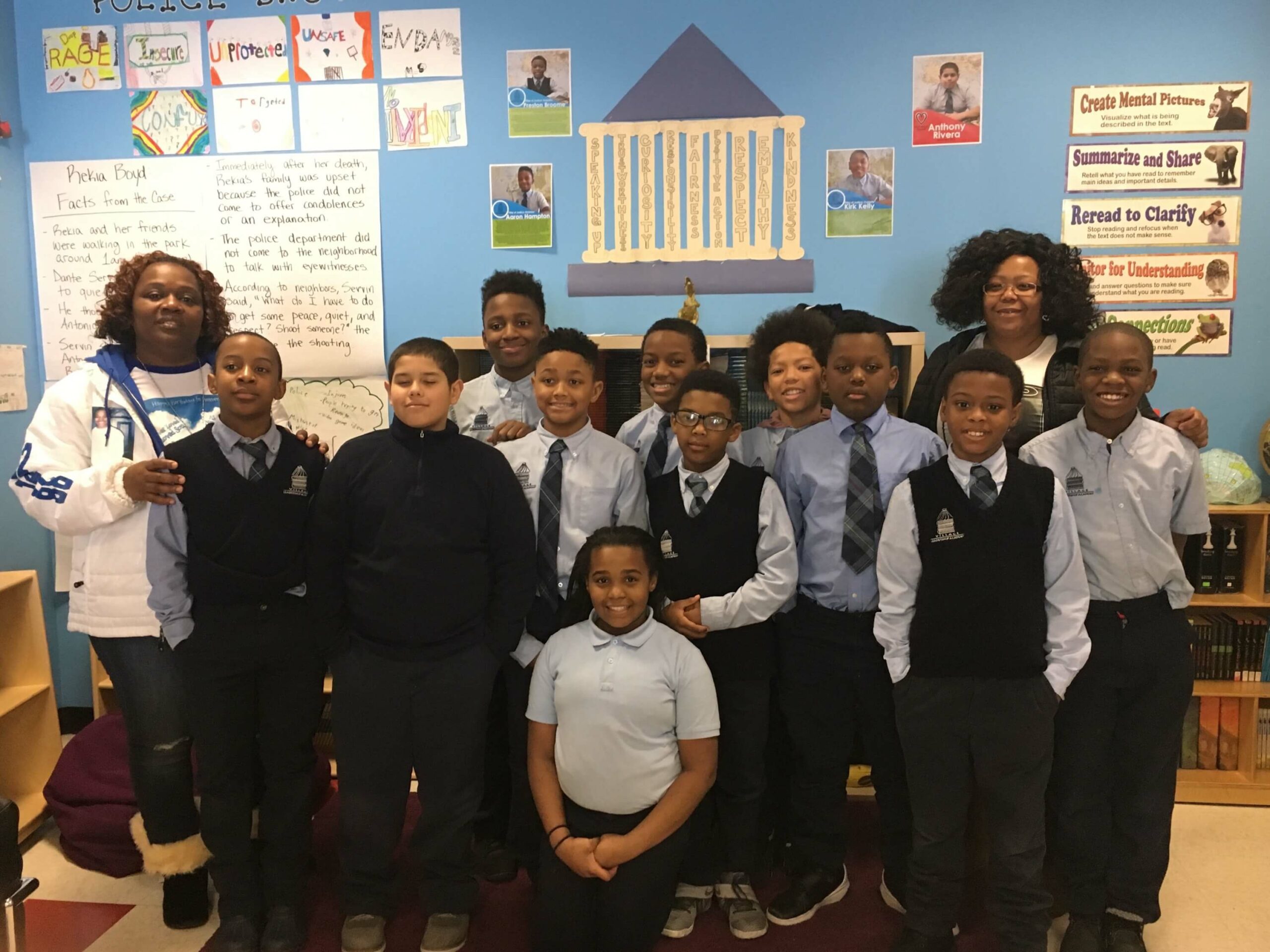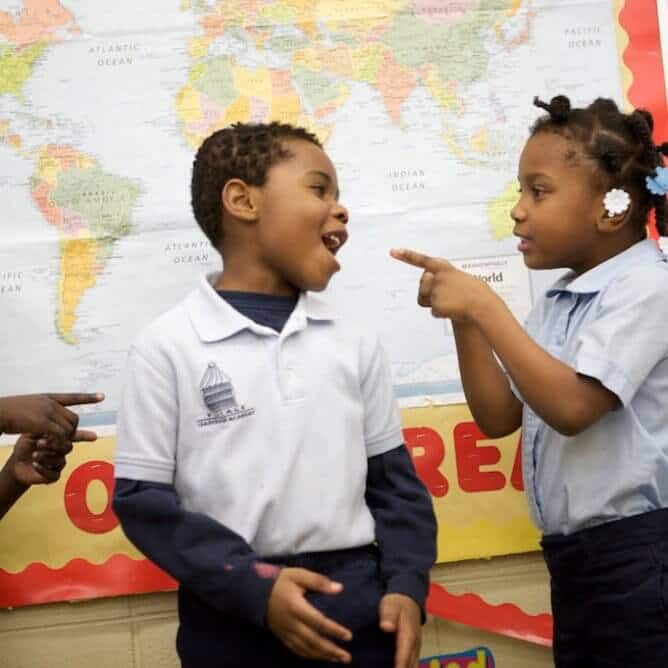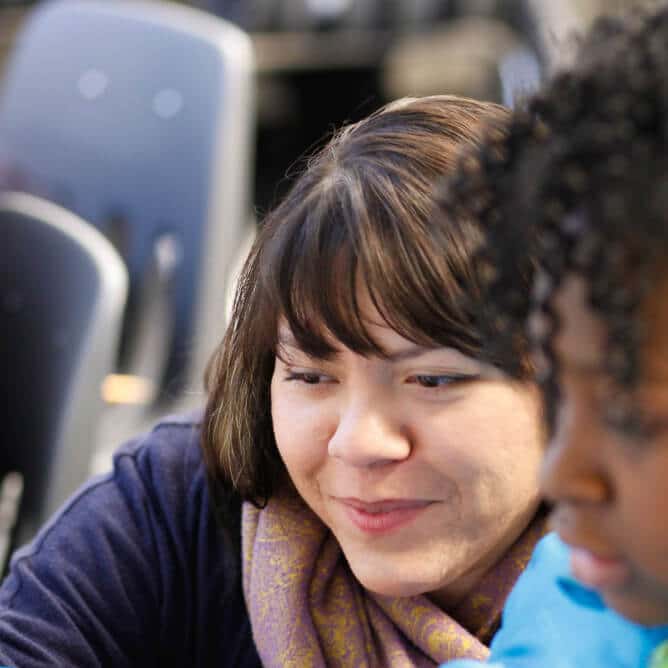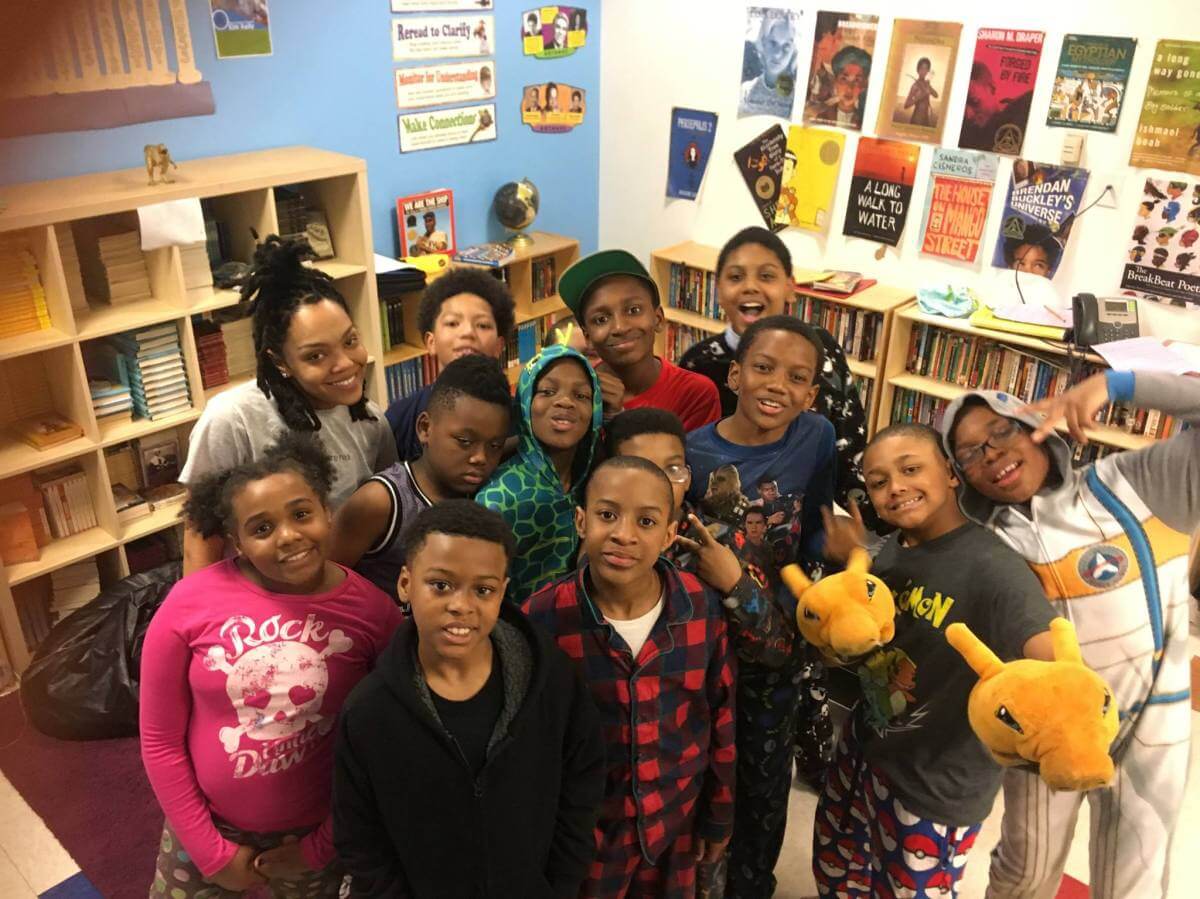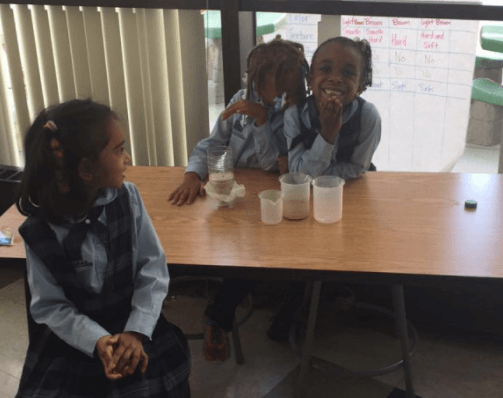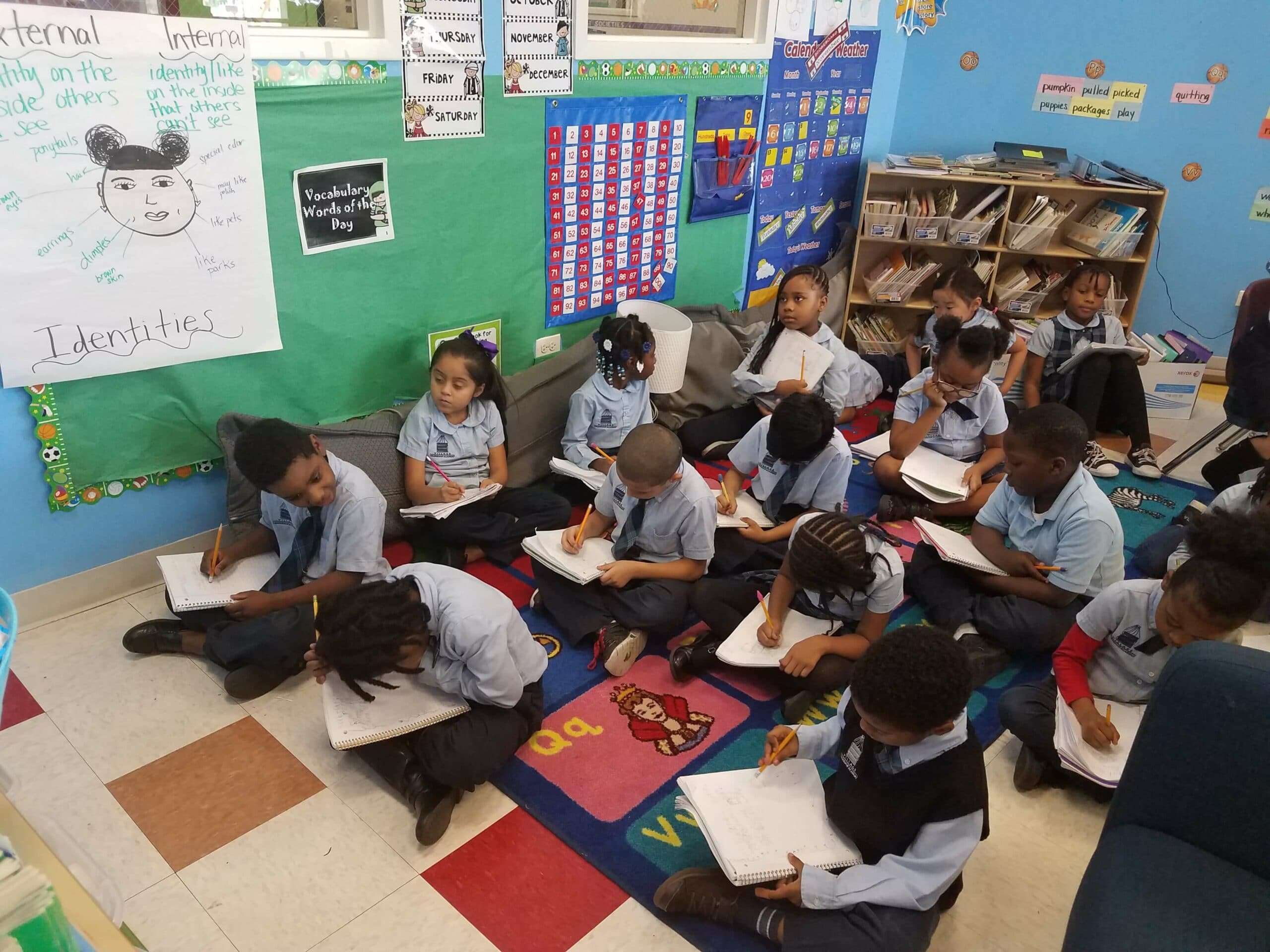Blog
Project Darfur (A Children’s Movement)
By: VLA Teacher, Miesha Ebacher
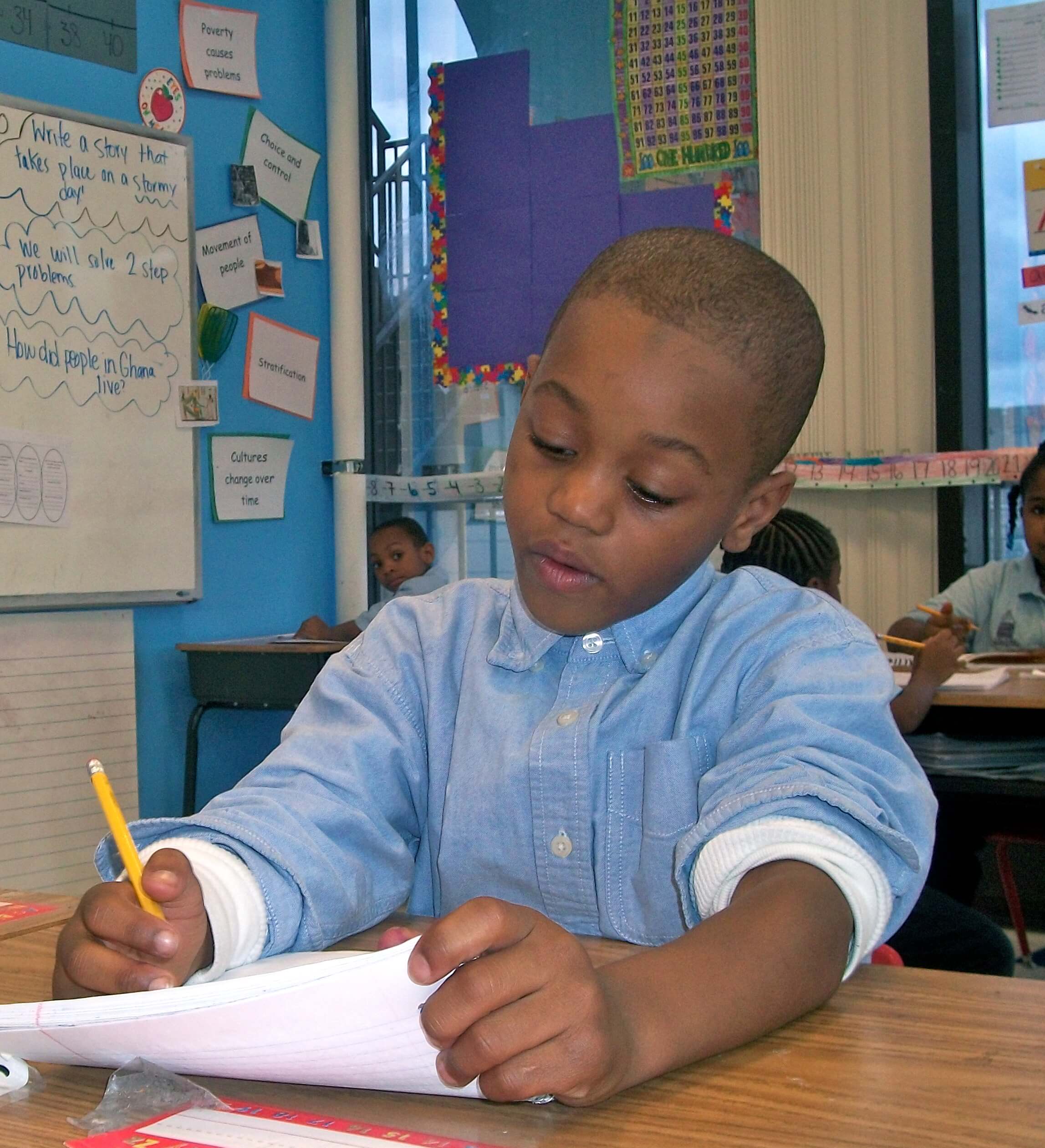
But sitting on the colorful reading carpet in my first grade classroom, these attitudes have not been conditioned just yet. Before social studies begins for the day, I review the research and material that I had collected from my curriculum specialist so that I am sure I understand everything as best as possible. “I’m not totally sure I understand how to explain all of the pieces,” I tell Ms. Wahlstrom (who is responsible for organizing our social studies units). “It’s a big issue,” she told me. “Explain it to them as best you can, in kid friendly language of course… even if they just get an introduction to this crisis, it is more than most children (and even some adults) in this country.” I nod my head but (knowing my personality style) I quietly relent that I don’t want the students of my class to get an introduction: I want them to know it as well as I do…today.
Jotting down their ideas to the question posed, “What would my life be like if I lived in Darfur” after my breathless (6 year old friendly) explanation of the causes, problems and current relations in Darfur, I wonder what they are thinking about this event.
As we share out, I quickly realize a mistake they have… no… I have made in my teaching: “I would have helped them;” “I would have tried to stop the people from killing each other;” “I would have given them food.”
After they finished and praises were given from peers and teachers alike, I said to them: “Friends…this didn’t happen in the past, this is happening now.” Their jaws dropped. Up to this point in the year we have been studying events that are deep into the fabrics of our history. Ancient Egypt, the triangular trade, the Berlin Conference and colonization have danced tragically across our wooden classroom desks, and the students have consistently came up with ways they would have acted differently than the fallen villans and heroes of our human story. But the idea… that today these mistakes are being made… that blew their mind.
Kassia (age 7) was the first to speak. “Ms. E… we have to fix this,” she said with desperate determination in her voice. The others quickly followed shouting ideas, all at the same time. I couldn’t make out all of it due to the volume level of their conversation, but I watched as the words, “I know! Let’s get a helicopter and fly to Darfur this Saturday,” came out of Tiana (my youngest genius’s mouth).
I giggled to myself. Oh silly kids…. thinking they can solve the world’s problems; thinking that we are just a plane ride away from peace: that we would go there and say what? “Stop being mean,” and the violence would cease? Silly Silly kids. I quietly explained… settling their passion. “Alright you rent the helicopter, and I will be there.” What seemed like a joke to me and Ms. Wahlstrom proved cruel as their expressions sunk and spirits fell. “Oh” their faces seemed to say: “oh yeah… kids can’t do anything.”
When I had spoke with my principal about the lesson, she was as fired up as the students. “That’s awesome! The world studies program seems to be motivating our students!” Forgetting almost completely about the disappointment my students had felt about their limitations to help Darfur, I went home feeling happy about the lesson. I didn’t realize till hours later the lesson that was taught with such a small, powerful joke.
I woke up the next morning to 3 e-mails sent at late hours of the night from my principal. The first, which pretty much said, “I’m proud of your work… but lets not squish their dreams just yet.” The second email had a list of ideas (I could only imagine powered through her mind as she began to think of ideas for my class to get involved in the issue). The third stated the suggestion that I make this my class’s service learning project this year (which all classrooms are required to do anyway).
Sometimes a spark is all you need. She spoke to me with her ideas, the trust she had in me to bring this idea to life, the love that rested behind her words as she pained for my students’ desire to do more, and (most importantly) the resurrection of that power my students and I had yesterday ( which i so easily dismissed). We can do more. We can change things. And nothing can stop us.
My fiancé told me and Ms Wahlstrom the other day a sad statistic he had learned from the book, Youth Crisis (by Nanette J Davis). It says that by the time an adolescent reaches the age of 18, they will “as a group have logged more hours in front of the television set than they will have spent in the classroom” (Strasburger 1995) and that “during this viewing time the average child or adolescent will see about one thousand murders, rapes, or aggravated assaults each year” (Huston et al. 1992).
We see a homeless man and know to say “sorry,” (or nothing at all) and keep walking to our party. We hear of a car accident on the radio and still drive on without a flinch. We process violence in our homes, communities, nation and world constantly and train ourselves (while subconsciously harboring intense internal fears of potential personal violence) to do nothing because… who are we?
Lulled by the soft hums of America that plead you to be a quiet citizen, a stupid voter and a polite church goer, we are now (and have always been) a country that associates normed behavior as ideal. Hush Hush, no need to stand up, hush hush no need to make a fuss. The truth is… we must stand up, and as a teacher, that should be the message of all of my lessons. Me telling my students to “calm down and quiet their ideas of ending the war and hunger in Sudan” was a reassurance from the person who is constantly telling them to “dream big and change the world, but there are limitations to their powers and these problems are too big for them.” Wrong.
When my principal’s daughter was born, she decided that she didn’t want her to attend the typical Chicago Public School that continues to fail meeting the needs of students who do not fit the ideal citizen (as described above: quiet, “behaved”, middle class etc…). Did she keep quiet? Did she believe there was nothing she could do? No… she created her own school! While pushing aside the large group of people that told her to “slow down, follow the rules and resist pushing the boundaries,” she created a school, and it has been changing lives since.
The teachers at my school may not be filled with massive years of teaching experience, but they are filled with unceasing passion, courage and love for their students. I will not be quieted because I lack many years of teaching on my resume. I am brilliant today in my twenties and my students are brilliant at 6. I am powerful today. And so are you.
I think that everyone needs to take a step back and realize the power lying within their own heart. Realize that you can make whatever you want happen right now and that nothing is beyond your reach. People may keep you down (physically, emotionally, educationally), but if you have a flame within in you (and it’s yours alone), then no one can extinguish it but you.
The Darfur project is a story of power. It is the example that anyone, no matter their age, race, ability, gender, sexuality, political beliefs, nation etc etc… that they can change the world into what they believe it to be.
We must crave change. We must crave understanding. We must crave the questions that lead us to new answers and a new world. Only then will we be able to say that history is different because of us.
So what is our plan? For the rest of this year the 6 year olds in my classroom will be working to help the people who are suffering due to the crisis in Darfur (because they care). We will raise awareness and we will give aid to these people through ongoing projects led, created, and designed BY THE STUDENTS.
I do not know yet where this project will lead us, but I do know that if I allow my students to use the power that I have already witnessed within them, then they will be changed and they will bring change to this world.
Enroll Now
Discover a partner in the future of your child. Enroll your scholar for the 2021-2022 school year today!
